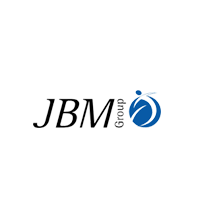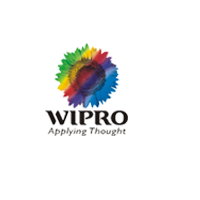Embedded systems training program
Best Embedded systems Training in Noida & Embedded systems Traiing Institute in Noida
Xtrude Engineers Provides Embedded Systems Training in Noida,Embedded Technology is presently in its main and the abundance of information easy to get to is hard to believe. Be that as it might, most embedded system engineers have a symbolicuprising. An Embedded Systems is a PC system by means of a dedicated ability within a superior mechanical or electrical system, often by continuing registering necessities. It is embedded as a feature of a total thing frequently as well as tackle and mechanical parts. Added frameworks control plentiful gadgets in like methods utilize these days.
Topics covered:
- INTRODUCTION OF EMBEDDED C
- INTRODUCTION TO PROCESSING DEVICES
- Introduction to Embedded Systems
- COMPUTER LANGUAGES
- Introduction of EMBEDDED C
- EMBEDDED DEVELOPMENT TOOLS
- Microprocessor & Micro-controller Classification
- Introduction to 8051 Micro-controller
- Interfacing of LCD
- Interfacing of Motors
Why Xtrude For Embedded Systems Training in Noida?
- You will get to work chained live projects
- Certified professional will conduct training.
- The entire training will be based on current industry trends.
- Placement partners have approved our training curriculum.
- Our Labs are very well-appointed in the midst of most modern edition of hardware and software.
- Our classrooms are effusive geared up by way of projectors & Wi-Fi access.
Course Syllabus For Embedded Systems Training in Noida
ADVANCED COURSE IN EMBEDDED C
Practical C
- Why C in Embedded
- ANSI Standard
- Fundamentals of C
- Datatypes and Constants
- Simple & Formatted I/O
- Memory Usage
- Operators & Expressions
- Flow Control
- Loops
Functions
- Role of Functions
- Pass by value / reference
- Returning values from Functions
- Recursive Functions
- Call Back Functions
- Implications on Stack
- Library Vs User defined function
- Passing variable number of arguments
Arrays
- Defining, initializing and using arrays
- Multi-Dimensional Arrays
- Arrays of Characters and Strings
- Arrays and Pointers
- Passing arrays to functions
- String handling with and without library functions
Storage Classes
- Scope and Life
- Automatic, Static, External, Register
- Memory(CPU / RAM)
Structures & Unions
- What structures are for
- Declaration, initialization
- Accessing like objects
- Nested Structures
- Array of Structures
- Passing structures through functions
- Allocation of memory and holes
- Structure Comparison
- Structure bit operation
- Typedef for portability
- Unions
- Overlapping members
Enumerated data types
- Enum, Indexing, enum Vs #define
Bit Operations
- AND ( & ), OR ( | ), XOR ( ^ )
- Compliment ( ~ )
- Left-Shift ( << ), Right Shift ( >> )
- Masking, Setting, Clearing and Testing of Bit / Bits
Pointers
- The purpose of pointers
- Defining pointers
- The & and * operators
- Pointer Assignment
- Pointer Arithmetic
- Multiple indirections
- Advanced pointer types
- Generic and Null Pointer
- Function Pointers
- Pointers to Arrays and Strings
- Array of Pointers
- Pointers to Structure and Union
- Pointers to Dynamic memory
- Far, Near and Huge Pointers
- Pointer Type Casting
Dynamic Memory Allocation
- Malloc(), Calloc(), Realloc(), Free() Farmalloc(), Farcalloc()
File Handling Concepts
- Concept of a FILE data type
- Inode, FILE structure
- File pointer
- Character handling routines
- Formatted Data Routines
- Raw data Routines
- Random Access to FILE
Command line Arguments
- Argc, argv
- Variable Inputs to the main
Compiler in Practical
- Compiler, Assembler, Linker
- Conditional Compilation
- Multiple File Compilation
- Code Optimization techniques
- Volatile, #pragma
Data Structures
- Linear & non-linear
- Homogeneous & non-homogeneous
- Static & Dynamic
- Single, Double & Circular Linked Lists
- Stacks & Queues
- Binary Trees
Sorting and Searching Techniques
- Insertion, Selection, Bubble, Merge, Quick, Heap
Concepts and Real-time Exposure
- Development Tools and Environment
- Make Utility
- Industry Coding Standards
- Object / Executable File Format
- Debugger
Mini Project 1
Linux Internals
Introduction
- Kernel Architecture
- Application
- Shell and Services
- System Calls
- Error Handling
Library
- Linker and Loader
- Static Dynamic Library
Process Management
- Process Control Block
- Process Creation and Exit
- Process Scheduling Policies
- Process Limits
- Process Priorities
- Foreground & Background Processes
- Race Condition
- Synchronization
- Copy-on-write
- Process time values
- Daemon Process
Interrupts
- Process Interrupt
- Raise of Signal
- Catching signal
- Signal action
File Management
- Files and File Attributes
- File Descriptor
- File I/O
- Duplicating File & File Descriptor
- File Control operations
- File types
- Protection
- Inode
Inter Process Communication & Synchronization
- Pipe
- Fifo
- Message Queue
- Shared Memory
- Client – Server properties
- Semaphore
Threads
- Creation
- Termination
- Synchronization
- Attributes
Memory Management
- Paging
- Reentrancy
- Segmentation
- Virtual Memory
- Memory Protection
- Memory Sharing
Shell Script
- Types of Shell
- Shell Variables
- Control Statements
- Looping
- Command Line Arguments
Mini Project 2
Networking and TCP/IP Applications
- Network Structure
- Classifications and Topologies
- Switching and Routing
- Gateway, repeater, Hub, Bridge
- OSI & TCP/IP Protocol Layers
- Physical & Logical Addresses
- ARP & RARP
- Internet Protocol
- Routing Protocol and IP Datagrams
- Error and Control Messages (ICMP) UDP
- Transfer Control Protocol
- TCP Networking Applications
- (FTP, TFTP,TELNET,DNS,DHCP,SNTP,POP3,IMAP,SNMP)
Socket Programming
- Overview
- Concurrent Processing
- Programming Interface
- Socket Interface
- Client / Server Design
- Concurrent Connection-Oriented Servers
- Socket Calls for TCP and UDP
- Single Process
- Concurrent Servers
- Remote Procedure Call
- Implementation of TFTP / SMTP
Mini Project 3
Microcontroller Intel 8051
Introduction
- Microprocessor vs Microcontroller
- CISC vs RISC
Overview of Architecture of 8051
- Processor Core and Functional Block Diagram
- Description of memory organization
- Overview of ALL SFR’s and their basic functionality
Low-level Programming Concepts
- Addressing Modes
- Instruction Set and Assembly Language (ALP)
- Developing, Building and Debugging ALP’s
Middle Level Programming Concepts
- Cross Compiler
- Embedded C Implementation, prog. * Debugging
- Differences from ASNSI-C
- Memory Models
- Library reference
- Use of #pragma directive
- Functions, Parameter passing and return types
On-Chip Peripherals
- Ports: Input/output
- Timers & Counters
- Interrupts, UART
External Interfaces
- LEDS
- Switches (Momentary type, Toggle type)
- Seven Segment Display: (Normal mode, BCD mode,
- Internal Multiplexing & External Multiplexing)
- LCD (4bit, 8bit, Busy Flag, Custom Character Generation)
- Keypad Matrix
Protocols
- I2C (EEPROM), SPI (EEPROM)
Keil’s RTX51 Tiny / Pumpkin’s Salvo
- Overview
- Specifications
- Single-Tasking Programs
- Multi-Tasking Programs
- RTX51 Tiny Programs
- Theory of Operation
- Timer Tick Interrupt
- Task Management & Scheduler Events
- Round-Robin & Co-operative Task Switching
- Idle Task
- Stack Management
- Function Reference
- Porting on to H/W
- Implementation Examples
Selective Discussion during Project Development
- A/D & D/A Converter
- Stepper motor, DC Motor
- I2C Protocol (RTC:800583,DS1307 ADC:PCF8591, DS1621)
- SPI Protocols (ADC:MCP3001)
- IR Communications (Phillips RC5 Protocol)
- ZIGBEE, GSM, GPS, USB, MMC & SD
- Ethernet MAC, CAN Protocol
Mini Project 4
Real Time Operating System
RTOS RT-LINUX
- RT- Linux
- Different types of Operating systems
- RTOS basics – Linux as Real Time
- RTOS Introduction (Hard Real Time, Soft Real time)
- Latency in Linux, Priority Inheritance
- Linux 2.6 features for realtime
- 2.6 Kernel Compilation
- RT LINUX patching
- Linux RTPREEMPT Patches
- Configuring the Kernel with RT-PATCH
- Implemantation of Real Time application
- Linux real-time API
- Measuring and camparing scheduling latency in standard Linux and in RT-Linux with the latest RT patches
- Porting RT-Linux on ARM and application development
Object Oriented Programming with C++
- Overview
- Characteristics
- Function Overloading
- Scope Resolution Operator
- Classes in C++
- Access Specifiers
- Constructor, Destructor
- Static members, Functions
- Friend Classes, Friend Functions
- Operator Overloading
- Data Conversions
- Inheritance, Polymorphism
- Exception Handling, Templates
- Input and Output Streams
IoT on Raspberry Pi
Introduction to the “Internet of Things”
Introduction to Raspberry Pi
- Tools : Win32ImageWrite & SDFormatter
- Loading Raspbian OS image on SD CARD
- Demo programs using C
- Backing Up Updated SD CARD & OS image
- Installing Wiring Pi package
- Controlling the Raspberry Pi 2 GPIO by command line
Networking with Pi
- Client – Server programming for Automating Device / sniffing Device State
IoT -Cloud
- Installing and configuring PubNub SDK for C language
- Creating credentials with PubNub Cloud Server
- End to End IoT program demonstrations
Final Project on Embedded IoT
ARM – (Student Optional)
- Introduction
- Core Features
- Version History
- Data Flow Model
- Registers
- CPU Modes
- Memory Organization
- Interrupts
- Pipelining
- ARM Assembly Language Programming
- Addressing Modes
- ARM 7 Instruction Set (20/80% -rule of assembly language)
- Usage of Keil IDE
- Demonstrating ARM ISA
- Demonstrating THUMB ISA
- ARM Embedded C language Implementation
- Exposure to an ARM7 CPU Core Based Microcontroller
- LPC2114-ARM7 Based Microcontroller from Philips Semiconductors
- On-Chip System Peripherals
- Bus Structure (AMBA)
- Memory Map
- Phase Locked Loop
- VPB Driver
- Pin Connect Block
- On-ChipUser Peripherals
- General Purpose I/0 : Demo using switch & LED
- Vectored Interrupt Controller (VIC)
- External Interrupts : Demos
Additional Modules (Will be dealt based on MNCs Requirement)
- Android
- iPhone
- Linux Devices Drivers
- Embedded Linux
- Windows Mobile
- Perl
- Python
Course Information For Embedded Systems Training in Noida
- Class Start: Every Monday, Wednesday & Friday
- Course Duration: 60 hours(40 hours for Software Training & 20 hours for Project Handling)
- Student Capacity: 8-12 students per batch
- Certification: For Software Training(1) & For Project Handling(1)
-
Course Benefits Include:
- Industrial Visit
- Tool Kit
- Lifelong Support
- Placement Guaranteed
- Project Handling
- Resume Writing
- Moneyback Guaranteed








